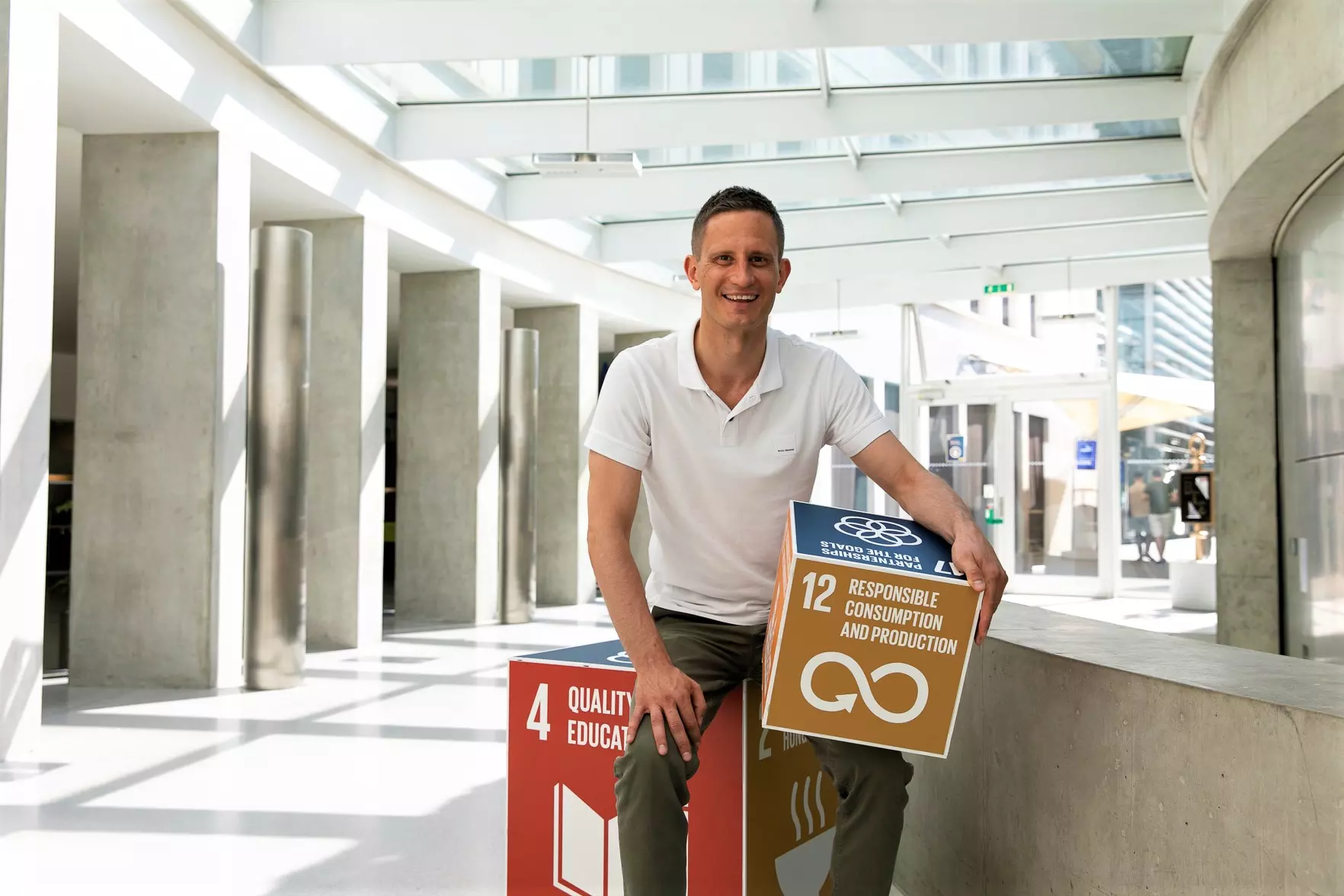PRME-related topics in our degree programs: Corporate Responsibility Business Projects
Five questions to Fridolin Brand, senior lecturer for the "Corporate Responsibility" module in the 5th semester of the BSc in International Management.

How is this module structured?
At the beginning of the semester, students receive a theoretical introduction to terms, concepts, and methods of strategic sustainability management based on the “SML essentials” textbook on corporate responsibility management. They are shown how a modern, professionally designed, transparent, and therefore credible, management approach to corporate responsibility is structured and what differentiates it from so-called "greenwashing" methods. These foundations form the theoretical tools to work on the issues provided by the companies and to develop solutions. The tasks assigned by the companies are handled in groups of five to six students. During the entire process, students are in direct contact with the respective company representative. At the end of the semester, the student groups present their solutions to the problem through a presentation and report to the company representative.
"As part of the business projects, students have the opportunity to gain insight into the internal processes of a company."
Dr. Fridolin Brand, Center for Corporate Responsibility
Can you give us some examples for issues provided by the companies?
The tasks are usually issues that are on the sustainability agenda of the companies in the short or medium term. They include, for example, the strategic integration of the SDGs, the implementation of standards and guidelines for human rights issues in the supply chain, or the further development of the quality of existing sustainability goals in the company. The task of the students is to determine the status quo in the company, to carry out a benchmarking analysis in comparison with competitors, to prepare relevant best-practice examples, and to formulate specific recommendations for the company. Sometimes these can be also more innovative challenges, such as creating a marketing concept for a sustainable product.
What companies have been involved in these projects so far?
We were able to work with renowned Swiss organizations such as Swiss International Air Lines, SV Group AG, Lindt & Sprüngli AG, and Sonova Holding AG. Two German companies were also involved as partners. Most are larger companies with their own department for sustainability and corporate responsibility issues. However, a Swiss start-up also featured this time. Incidentally, we have received very positive feedback from the companies. Cooperation with students offers excellent added value, and the results from the student groups have been very satisfactory so far. We are continually looking for other business partners so that students can continue to work on specific challenges in the area of corporate responsibility.
"We are continually looking for business partners who are interested in creating a real-life learning experience for students in the field of sustainability."
Dr. Fridolin Brand, Center for Corporate Responsibility
How do the students find these business projects?
Direct exchanges with companies and the chance to work on real, practical challenges are highly motivating for students. They have the opportunity to work with potential future employers and gain insight into the internal processes of a company. The prospect that companies will later adopt solutions developed in the context of these business projects usually motivates students to engage with the subject matter at a deep level. Of course, these projects also require a lot of commitment and a sense of responsibility, as well as excellent communication skills and project coordination. But that's precisely what students should be learning and how they will gain experience.
Further information
The interview is an extract from the PRME progress report 2017/2018 of the SML. Every two years, the PRME progress report provides evidence of the activities and the commitment at the SML in the area of responsible management education.
Contact
Dr. Fridolin S. Brand, Lecturer, Center for Corporate Responsibility, ZHAW School of Management and Law, phone: +41 (0)58 934 46 81, e-mail: fridolins.brand@zhaw.ch
Dr. Brand, in the 2018 fall semester, you realigned the didactic approach for the compulsory "Corporate Responsibility" module. What were your reasons?
It is important to me that students not only understand the theories and methods of strategic corporate responsibility and sustainability management but also learn how to apply these approaches to practical problems. Business projects provide this benefit. Students receive a specific challenge from companies in the field of sustainability, for which they must develop a solution in groups. At the same time, the projects show students the relevance of challenges in the area of corporate responsibility and sustainability in practice, which in turn makes the topic more tangible. Also, such action learning approaches promote problem-solving skills, critical thinking, and creativity, as well as strengthening project management skills. At the same time, students are required to work on their social skills, such as productive teamwork and good conflict management.